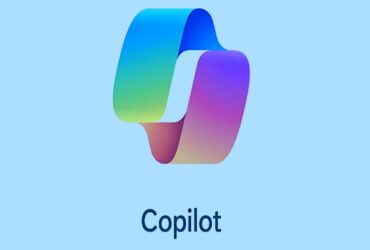Startups face numerous challenges, and with around 90% of startups failing, the pressure to get things right from the start is immense. One way to significantly improve the chances of success is by developing a Minimum Viable Product (MVP). By focusing on essential features and quick market entry, startups can test ideas, gather user feedback, and mitigate risks before full-scale development. This is where MVP development services play a crucial role in guiding startups to validate their concepts without overextending resources.
What is a Minimum Viable Product (MVP)?
An MVP is a simplified version of a product that carries just enough functionality to attract early adopters and validate a concept with minimal effort and expense. It’s not about launching an unfinished product but rather creating a strategic version that allows testing and learning. Many successful startups like Airbnb and Dropbox began with MVPs, launching early prototypes that enabled them to test market demand and iterate based on user feedback. For example, Airbnb’s MVP was simply renting out an air mattress in their apartment, and Dropbox’s MVP was a video demo of how their product would work, allowing them to gather user interest before building the full product.
The Benefits of Developing an MVP
1. Test Market Demand Early
One of the key benefits of developing an MVP is market validation. A startup can quickly gauge whether there’s a demand for their product by getting it into users’ hands early on. This allows startups to gather market insights and analytics, such as user engagement and feedback on key features, helping them better understand market needs and preferences. This data-driven approach ensures that product development is based on real-world demand rather than assumptions.
2. Gather User Feedback
With an MVP, startups can build with users in mind from the very beginning. Getting real-world user feedback helps refine the product’s features, design, and usability. This iterative development process enables startups to create a product that better fits market needs, as the feedback loop allows for continuous improvement and customization based on what users want and expect. By understanding how users interact with the product, startups can make informed decisions to enhance the user experience.
3. Reduce Development Risks
Developing an MVP helps minimise financial risks by preventing heavy investments in features or functionalities that may not be needed or desired by the market. By testing assumptions early and validating the core value proposition, startups can make informed decisions about which direction to take or whether to pivot entirely. This approach not only reduces financial risk but also saves time and resources by ensuring the product meets real-world demand before scaling.
Steps to Building a Successful MVP
Creating a successful MVP involves a clear process:
- Identify the Core Problem & Solution: Startups should narrow down the primary problem they want to solve and ensure their MVP focuses on addressing this core issue effectively.
- Define Key Features: It’s important to prioritise the necessary features that demonstrate the product’s core value. Overloading an MVP with too many features can complicate testing and development.
- Build, Launch, & Measure: Rapid development and quick market launch are essential for an MVP. Once launched, success should be measured through key metrics like user engagement, feedback loops, and conversion rates.
- Iterate & Improve: Based on user feedback, iterate and improve the MVP. This continuous process helps refine the product until it achieves a strong product-market fit.
Case Studies – How MVPs Transformed Startups
Take Dropbox, for example. The company launched a simple video MVP that demonstrated its cloud storage concept. This video alone was enough to validate their idea, attract a user base, and secure funding. Similarly, Airbnb tested their idea by renting out an air mattress in their apartment to see if people were interested in an alternative accommodation option. Both startups iterated on their MVPs based on real-world feedback, eventually leading to their global success.
Why MVP Development Services Matter
MVP development services bring critical expertise and guidance, helping startups avoid common pitfalls. These services employ an agile development approach, enabling rapid iteration and ensuring that a startup’s product is built on a strong foundation. By leveraging the experience of professionals in MVP development, startups can quickly identify market needs, test assumptions, and refine their product effectively.
MVP development is a strategic move for startups to validate ideas, minimise risks, and achieve a better product-market fit. By focusing on market testing, gathering feedback, and reducing risks, startups can lay a solid foundation for growth and success. If you’re looking to take your startup to the next level, explore how MVP development services can help transform your vision into a successful reality.
Remember, an MVP is more than just a product—it’s a strategic pathway that allows startups to test, learn, and grow efficiently before making heavy investments.













































Leave a Reply